- Home
- Douglas Niles
Darkwell
Darkwell Read online
THE FIRST FORGOTTEN REALMS® TRILOGY
The patron god of any who would slay another of his kind, Bhaal found plentiful worshipers among the humans and other creatures of the many worlds. Foremost among them were the people of the Forgotten Realms.
It was in the Realms that the eagle flew, and died, and it was in the Realms that Bhaal’s most powerful minions had been fought and bested by these humans who called themselves the Ffolk. Now Bhaal focused his entire baneful nature on the land claimed by these humans. Now one servant, a cleric of great power and even greater evil, still remained to do his bidding.
Slowly Bhaal’s vengeance took form. The humans who obsessed him would die, but only after everything they loved had died before them. He himself would see to that. No longer would he trust his revenge to the talents of his minions.
To this end, Bhaal fostered the Darkwell.…
IN AN ALL NEW EDITION
The Moonshae Trilogy • Book Three
DARKWELL
©1989 TSR, Inc.
©2004 Wizards of the Coast LLC
All characters in this book are fictitious. Any resemblance to actual persons, living or dead is purely coincidental.
This book is protected under the copyright laws of the United States of America. Any reproduction or unauthorized use of the material or artwork contained herein is prohibited without the express written permission of Wizards of the Coast LLC.
Published by Wizards of the Coast LLC.
FORGOTTEN REALMS, D&D, WIZARDS OF THE COAST, and their respective logos are trademarks of Wizards of the Coast LLC in the U.S.A. and other countries.
All Wizards of the Coast characters and their distinctive likenesses are property of Wizards of the Coast LLC.
Cover art by J.P. Targete
This Edition: December 2004
Library of Congress Catalog Card Number: 2004106797
eISBN: 978-0-7869-5974-7
U.S., Canada, EUROPEAN HEADQUARTERS
ASIA, PACIFIC, & LATIN AMERICA Hasbro UK Ltd
Wizards of the Coast LLC Caswell Way
P.O. Box 707 Newport, Gwent NP9 0YH
Renton, WA 98057-707 GREAT BRITAIN
+1-800-324-6496 Save this address for your records.
Visit our web site at www.wizards.com
v3.1
To Colby Ward,
Dragonslayer
Contents
Cover
Other Books by This Author
Title Page
Copyright
Dedication
Map
Prelude
1 - The Obscene
2 - Long Live the King
3 - Seduction
4 - On Wings of Wind
5 - Into the Darkness
6 - Shantu
7 - Tiger’s-Tooth and Cat’s-Claw
8 - Oath of Blood and Despair
9 - The Trap
10 - Fallen Fortresses
11 - Sun-Sign of Chauntea
12 - The Second Scroll
13 - A Deeper Darkness
14 - Faeriewalkers
15 - Dance of the Deathbirds
16 - Betrayals
17 - Tempest of Ice and Fire
18 - To the Black Water
19 - Death in the Darkwell
Epilogue
Acknowledgments
WHAT HAS
GONE BEFORE …
Tristan Kendrick, Prince of Corwell, stood upon the brink of manhood when the Beast, Kazgoroth, emerged from its fetid pool to savage the land. The insidious monster, often disguised in the flesh of a man, engaged the help of firbolg giants and savage northmen to attack the Ffolk of Corwell.
The prince came of age during this, the Darkwalker War. He returned a lost artifact, the Sword of Cymrych Hugh, to his people. He led them to ultimate victory against the Beast. And he found his life’s love in the person of Robyn, a maiden who had been raised with him as the king’s ward.
Also during the war, Robyn discovered her own deep powers as a druid, harnessing the forces of the earth to work magic and miracles. She loved the prince but faced a deeper calling after the war. She journeyed to pastoral Myrloch Vale to study the ways of her order under the Great Druid of the isles, Genna Moonsinger.
But there she found that the influence of Kazgoroth was not altogether banished. An unnatural army of corpses invaded the vale, and Robyn alone of the druids escaped. The others were imprisoned as stone statues around the scene of their last stand and as Robyn departed, the vale was turned into a wasteland behind her.
His father murdered, Tristan journeyed to the neighboring island of Callidyrr to confront the High King of all the Ffolk. Caught in a rebellion and finally joined by Robyn, Tristan found himself once more victorious, receiving the royal Crown of the Isles. He was crowned High King by the Ffolk, then prepared to return to Corwell.
But still the evil lurked in Myrloch Vale.…
he goddess Earthmother wept, her wound a gaping slash across her flesh. The cut was deep, perhaps mortal, but there were none to know her suffering.
She cried out in pain from the scar of black magic, where her body lay torn and ripped from the assault of evil. Though the last convulsion of her power had excised the rot, tearing it from herself and allowing the cool sea to wash the wound, still the pain continued.
The goddess cried out for her servants, her devoted druids. These human caretakers were trapped in a prison of the mother’s own invention. They stood frozen as stone statues around the blasted scene of their final defeat. The protection of the goddess had imprisoned them thus, saving them at least from death. One druid, and one alone, had escaped petrification.
And the goddess wept for the Ffolk, her people. War ravaged their fair land relentlessly, striking each of the four kingdoms with cruel force. Many Ffolk died while resisting the attack of northman or foul beast, but still peace eluded them.
Now her grief manifested itself in the glowering clouds that hung low over the isles, and the unnatural chill that sucked the summer’s warmth from the land and though the season was but early autumn, brought a winterlike frost. Her pain sent whirlwinds exploding from her soul, twisting funnels of violence that tore at the land unmindful of the hurt they caused.
Yet the land was not altogether without hope. For the first time in many decades, the king of the Ffolk was a true hero, as was right and proper. And though one lone druid remained free, she was a druid of great faith and steadily growing might.
But they were both very young, and the goddess was very old. She doubted that she could live long enough to see them prevail.
Or fail.
eavy breakers assaulted the stone barrier protecting Llewellyn Harbor. They crashed against the rocky rampart, sending clouds of spray through the air, roaring in frustration as the eternal power of the sea dispersed against the fundamental strength of stone.
A lone figure stood near the end of the breakwater. The man was heavily wrapped in oilskins and ignored the salty shower that doused him each time a fresh wave expended itself. If anything, he relished the bracing cold of the water.
The man was young, but he was a king of many lands. He had bested creatures foul and wizards of might, yet he felt unsure of his own strength. He held the love of a strong woman in his heart, but still his future remained a muddled blur before him.
Tristan Kendrick claimed as ancestors a long line of kings, but for two centuries the Kendricks ruled only the small, sparsely populated land of Corwell. Now, as High King of the Ffolk, King Kendrick accepted fealty also from Moray, Snowdown, and mighty Callidyrr.
The king had recently won a war, the Darkwalker War, besting a supernatural beast and its human allies. He had claimed as allies the graceful warriors of the Llewyrr and the doughty fighters of the dwar
ven realms. His blade, the Sword of Cymrych Hugh, girded him as ample proof of his heroism, for he had returned the weapon to the Ffolk after many decades of absence.
Finally the man turned from the sea, walking slowly along the rocky barrier toward the welcoming lights of Llewellyn Town. The sea had given him no answers. Nothing, it seemed, could give him the answers.
And there were so many questions.
The eagle soared slowly. Its eyes, dulled by fatigue, searched the barren landscape below, seeking any morsel of lifesaving food.
But the bird saw nothing. No trace of animal, small or large, appeared across the stretches of brown marsh. Even the trees of the once-vast forests now resembled gaunt skeletons, barren of leaves and needles, surrounded by heaps of rotting compost.
The great bird swirled, confused. It sought a glimpse of the sea, or even the high coastal moor. But everywhere the view yielded scenes of rot and corruption. With a sharp squawk of despair, the eagle soared off in a new direction.
A sudden movement caught the eagle’s keen eye, and it swept into a diving circle to investigate. But it pulled up short, screeching its frustration at the shambling figure on the ground. Though the creature smelled of carrion, it moved. Though it moved, it was not alive.
Growing desperate now, the eagle soared away in search of something, anything, to eat. It came upon a region of utter desolation, a place that made the past reaches of barren land seem fertile. The predator flew north, over a stagnant brown stream. It crossed a reach of dead, fallen timber.
Finally it came to a small pond. The water was surrounded by twenty stone statues, remarkably lifelike human figures in various poses of battle. The surface of the pond itself was an impenetrable black.
But what was that? The eagle saw, or imagined, motion below that flat, lightless surface. It could have been a trout, swimming complacently in the center of the pond. It could have been anything.
The bird tucked its wings and plummeted toward the shadow. The water rushed up to meet it, and the true nature of the dark shape became visible. The eagle shrieked and struck outward with its wings, slowing but not halting its descent. One claw, still extended to clutch the imagined prey, touched the surface of the black water.
A crackling hiss broke the silence, and for a moment the eagle froze, outlined in blue light. In another instant, the bird was gone, though no ripple disturbed the surface of the dark pond. A lone white feather, caught by an errant breath of wind, drifted upward and fluttered forlornly to settle upon the muddy shore of the Darkwell.
Bhaal, god of murder, relished the eagle’s death. Though he still dwelt in his fiery bier upon the distant and hostile plane of Gehenna, the minor snuffing of life in a place unimaginably remote was power transmitted directly to his foul essence.
Such was the power of the Darkwell. And such was the power of Bhaal.
The patron god of any who would slay another of his kind, Bhaal found plentiful worshipers among the humans and other creatures of the many worlds. Foremost among them were the people of the Forgotten Realms.
It was in the Realms that the eagle flew, and died, and it was in the Realms that Bhaal’s most powerful minions had been fought and bested by these humans who called themselves the Ffolk. Now Bhaal focused his entire baneful nature on the land claimed by these humans. Now one servant, a cleric of great power and even greater evil, still remained to do his bidding.
Slowly Bhaal’s vengeance took form. The humans who obsessed him would die, but only after everything they loved had died before them. He himself would see to that. No longer would he trust his revenge to the talents of his minions.
To this end, Bhaal fostered the Darkwell.
A deep laugh rumbled in his cavernous breast as he pondered the history of the pool. Only a month before, it had been a crystalline symbol of hope and purity, a Moonwell, sacred shrine of the goddess Earthmother. Her body was the earth itself, but her spirit resided primarily in pools such as this—clear, unspoiled water blessed with the benign enchantment of the goddess Earthmother.
This had been her most sacred well, but now the might of Bhaal, coupled with the deadly skills of his servant, the cleric Hobarth, had desecrated and polluted the water so that it no longer resembled its former state. Indeed, now it was a festering sore upon the land spreading decay like a cancer through the rocks and clay and sand of the earth.
The former soul of the goddess now gave Bhaal a window into the world of man, and he liked what he saw. Slowly the god of murder moved toward the Darkwell.
He knew exactly what to do.
The stag stumbled weakly against a rotten trunk. Its bedraggled flanks heaved with the effort of breathing. Its sweeping antlers swayed toward the ground, and the creature’s dry, swollen tongue fell limply from its jaws. Unsteadily the huge deer lumbered away from the dead tree, past many more, through the dead forest.
Blinking in confusion and despair, the animal sought some sign of the Myrloch Vale it had known all its life. The broad valley of sun, the brilliant leaves of autumn, vast meadows of flowers swaying easily in the fresh breeze … all these things were gone.
The stag’s ribs showed clearly through its torn pelt, for it had not eaten in many days. Yet this was not the greatest of the animal’s needs.
The stag had to find water. It sensed that it could live no more than a few hours without it. The swollen tongue flopped loosely, and the wide eyes were obscured by an unnatural glaze.
A feeble breath of wind stirred the dead wood, and with it came the smell of water. Not clean water, to be sure—the scent was well mixed with those of rot and decay—but it was the scent of water nonetheless. With renewed vigor, the stag trotted toward the promising sign.
Soon the great deer came upon a black pond. The stag ignored the unnatural stillness of the water. It paid scant notice to the twenty stone statues arrayed around the perimeter of the pool, except to ascertain that the humanlike figures were indeed stone and not flesh. Even had they been living huntsmen, however, it is doubtful the deer could have turned from that compelling pond.
Bhaal watched the stag approach, willing it closer and closer. The god remembered his flash of pleasure upon the death of the eagle, and Bhaal relished the thought of the much larger body that approached.
The swollen tongue reached for the black surface. At the last moment, the stag sensed the wrongness of the water. It tried to pull back, to raise its broad antlers away from this awful thing. But it was too late.
The neck bent, pulled by a force far greater than the stag’s own muscles, and its muzzle struck the surface of the Darkwell. A crackling blaze of blue light illuminated the stag’s body, casting an intense glow across the pond for an instant.
Then the deer was gone. As with the eagle, its body had caused no ripple to mar the inky surface of the well. Only the skull remained, resting on the muddy bottom in several inches of water. Its empty eye sockets stared skyward, while overhead spread the massive rack of antlers like a ghastly tombstone.
Robyn of Gwynneth lay in the hold of the lunging ship and prayed for a word from her goddess. The wooden timbers around her seemed to thrum softly with the power of her prayer, but that was all she sensed. She felt lonely and afraid, fearing for the Earthmother more than for herself.
In the darkness of the hold, she felt the touch of her spiritual mother, but it was faint and frail. She sensed a growing void between herself and her goddess, but she was at a loss to close it. “Mother, hold me, help me!” she whispered, but the unfeeling planks of the hull gave no comfort, and there was no reply. The source of her faith and her power was on the verge of extinction, and the druid could do little to help.
Strangely, even as the presence of the Earthmother faded, Robyn felt her own earthmagic growing in potency. Within the confinement of the long sea voyage, her body grew stronger daily. Her muscles were hard and wiry. Her mind was sharp and alert, to the point that she could hardly sleep. And she could feel the power growing within her.
But
when she prayed, or on those rare nights when she slept deeply enough to dream, there was no word, barely the faintest image, to suggest that the mother was near.
Robyn knew of no other druid still walking free upon any of the Moonshaes. The most powerful of her order all stood frozen, locked in stone at the moment they had lost their most crucial battle. Only Robyn had escaped, and she felt pitifully inadequate for the tasks arrayed before her.
But she had no choice except to try.
The fat cleric wiped a hand through his greasy hair, anxious now to reach his destination. For several days, he had explored the surrounding lands of Myrloch Vale, but his journey was nearly complete.
The entirety of Myrloch Vale was now known to him. The vast valley, in the center of the island of Gwynneth, had long been a bastion of the goddess who had watched over these isles. Now, however, it had become a land of death, a monumental wasteland in testament to the awesome power of the cleric’s god.
And he had ventured to northern Gwynneth, beyond the vale and into the lands of the northmen along the fir coast. These invaders had claimed the land from the native Ffolk, establishing a number of villages and even one good-sized town, but had nothing resembling a separate state there. Bhaal had wondered about these humans, and so the cleric had investigated.
The southern land of Gwynneth, occupying nearly half the isle, was the kingdom of Corwell, of the people known as the Ffolk. This land the cleric had not visited, but that mattered little, for Corwell was already well known to the minions of Bhaal.
Now Hobarth, cleric of Bhaal, returned to the Darkwell with good news for his foul master. Decay spread rapidly across the vale. Everywhere he went, Hobarth found death and rot, as whole forests died and placid lakes shriveled into festering swamps.
The area around the well was particularly barren. The corpses of the many zombies he had raised from death were gone now, as Hobarth had ordered them into the well. Their presence, in fact, had been a prime source of the pollution that had so effectively corrupted the Moonwell. And the decay seemed to be spreading rapidly. Bhaal, Hobarth knew, would be pleased.

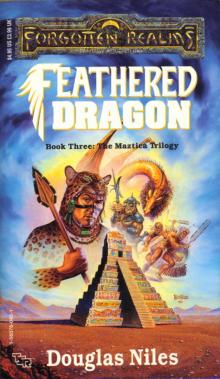 Feathered Dragon mt-3
Feathered Dragon mt-3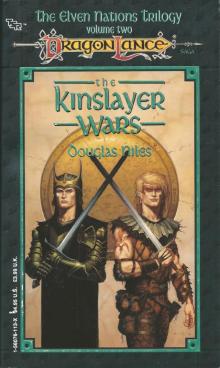 The Kinslayer Wars
The Kinslayer Wars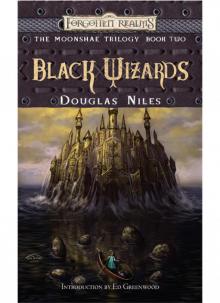 Black Wizards
Black Wizards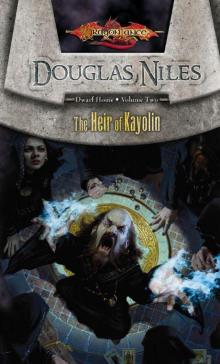 The Heir of Kayolin dh-2
The Heir of Kayolin dh-2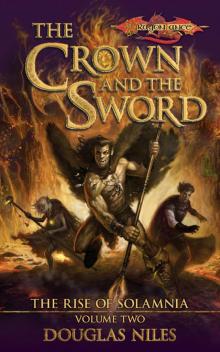 The Crown and the Sword tros-2
The Crown and the Sword tros-2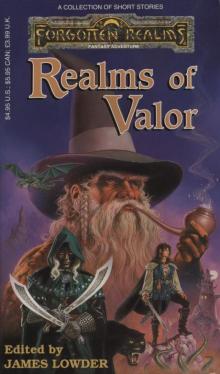 Realms of Valor a-1
Realms of Valor a-1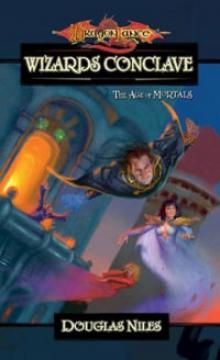 Wizards Conclave aom-5
Wizards Conclave aom-5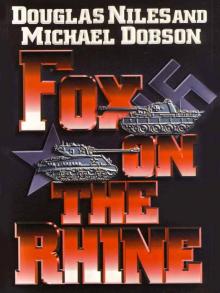 Fox On The Rhine
Fox On The Rhine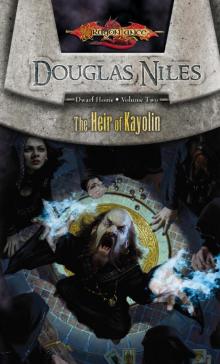 The Heir of Kayolin
The Heir of Kayolin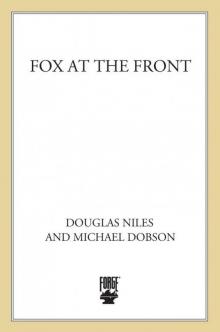 Fox at the Front (Fox on the Rhine)
Fox at the Front (Fox on the Rhine)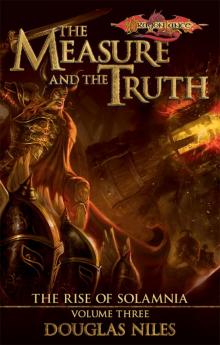 Measure and the Truth tros-3
Measure and the Truth tros-3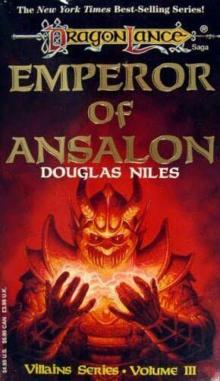 Emperor of Ansalon (d-3)
Emperor of Ansalon (d-3)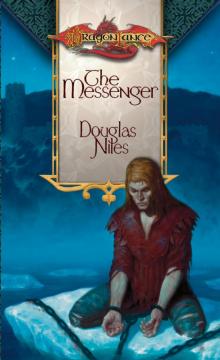 The Messenger it-1
The Messenger it-1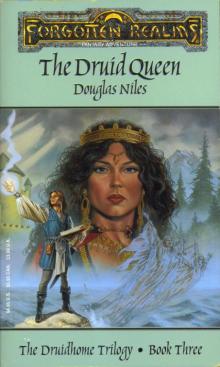 The Druid Queen tdt-3
The Druid Queen tdt-3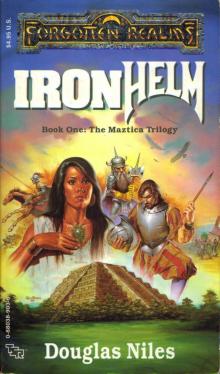 Ironhelm mt-1
Ironhelm mt-1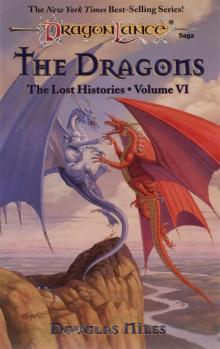 The Dragons lh-6
The Dragons lh-6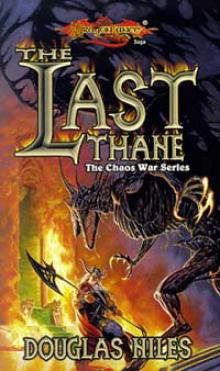 The Last Thane cw-1
The Last Thane cw-1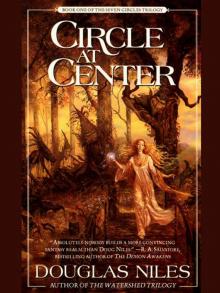 Circle at center sc-1
Circle at center sc-1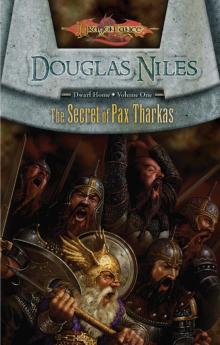 Secret of Pax Tharkas dh-1
Secret of Pax Tharkas dh-1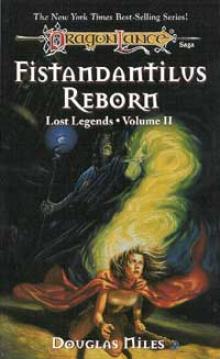 Fistanadantilus Reborn ll-2
Fistanadantilus Reborn ll-2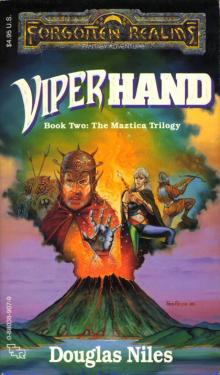 Viperhand mt-2
Viperhand mt-2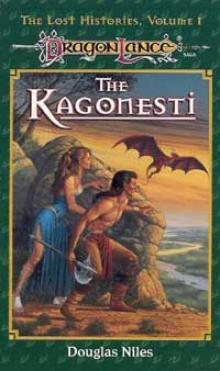 Kagonesti lh-1
Kagonesti lh-1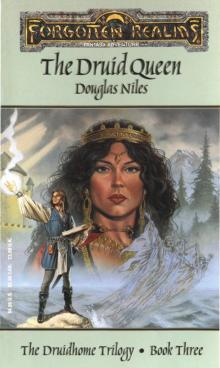 The Druid Queen
The Druid Queen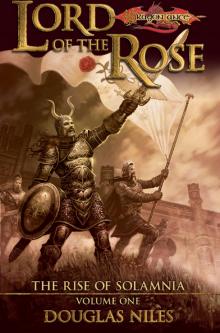 Lord of the Rose tros-1
Lord of the Rose tros-1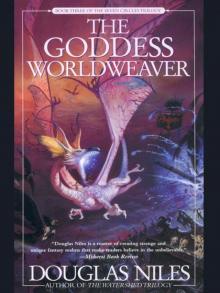 Goddess Worldweaver sc-3
Goddess Worldweaver sc-3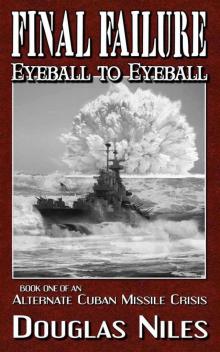 Eyeball to Eyeball (Final Failure)
Eyeball to Eyeball (Final Failure)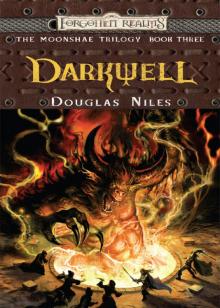 Darkwell
Darkwell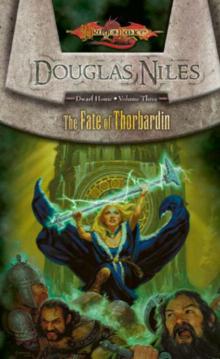 Fate of Thorbardin dh-3
Fate of Thorbardin dh-3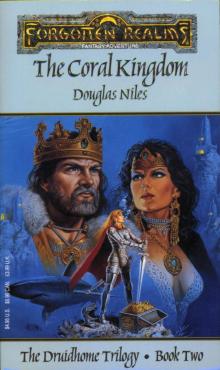 The Coral Kingdom tdt-2
The Coral Kingdom tdt-2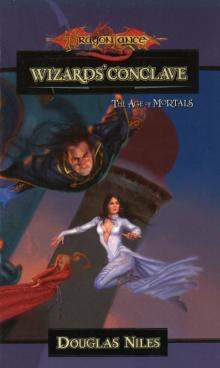 Wizard's Conclave
Wizard's Conclave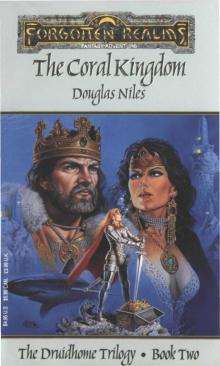 The Coral Kingdom
The Coral Kingdom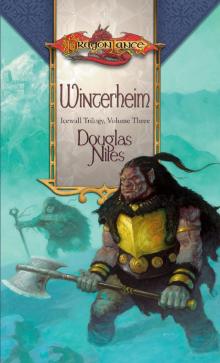 Winterheim it-3
Winterheim it-3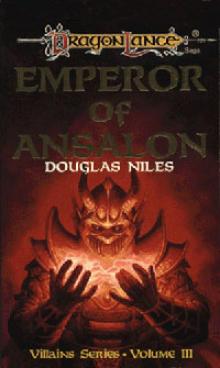 Emperor of Ansalon v-3
Emperor of Ansalon v-3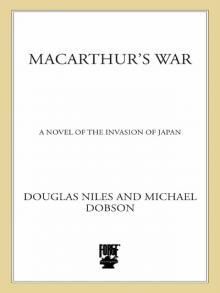 MacArthur's War: A Novel of the Invasion of Japan
MacArthur's War: A Novel of the Invasion of Japan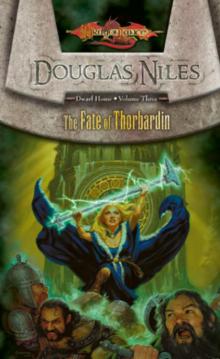 The Fate of Thorbardin
The Fate of Thorbardin The Rod of Seven Parts
The Rod of Seven Parts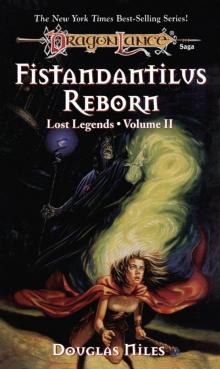 Fistandantilus Reborn
Fistandantilus Reborn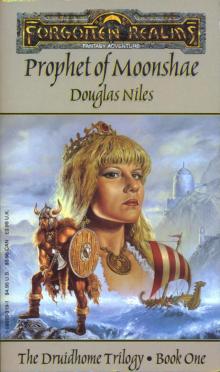 Prophet of Moonshae tdt-1
Prophet of Moonshae tdt-1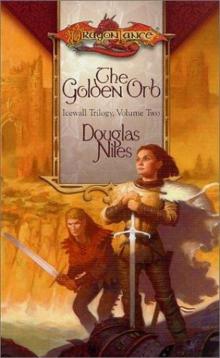 The Golden Orb i-2
The Golden Orb i-2